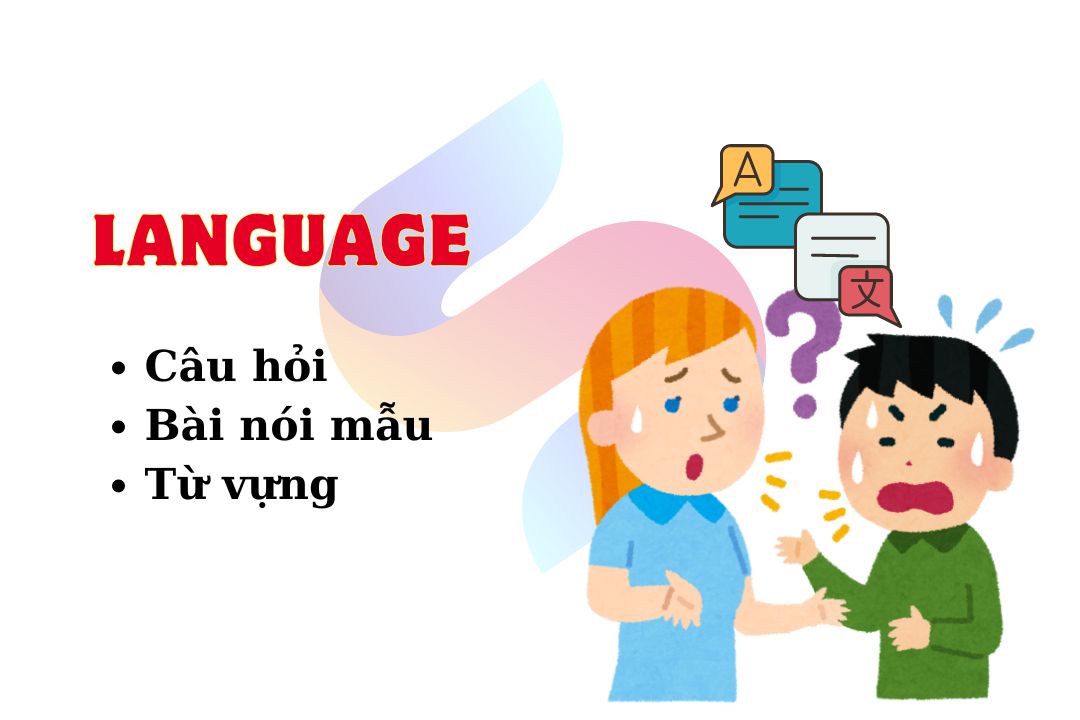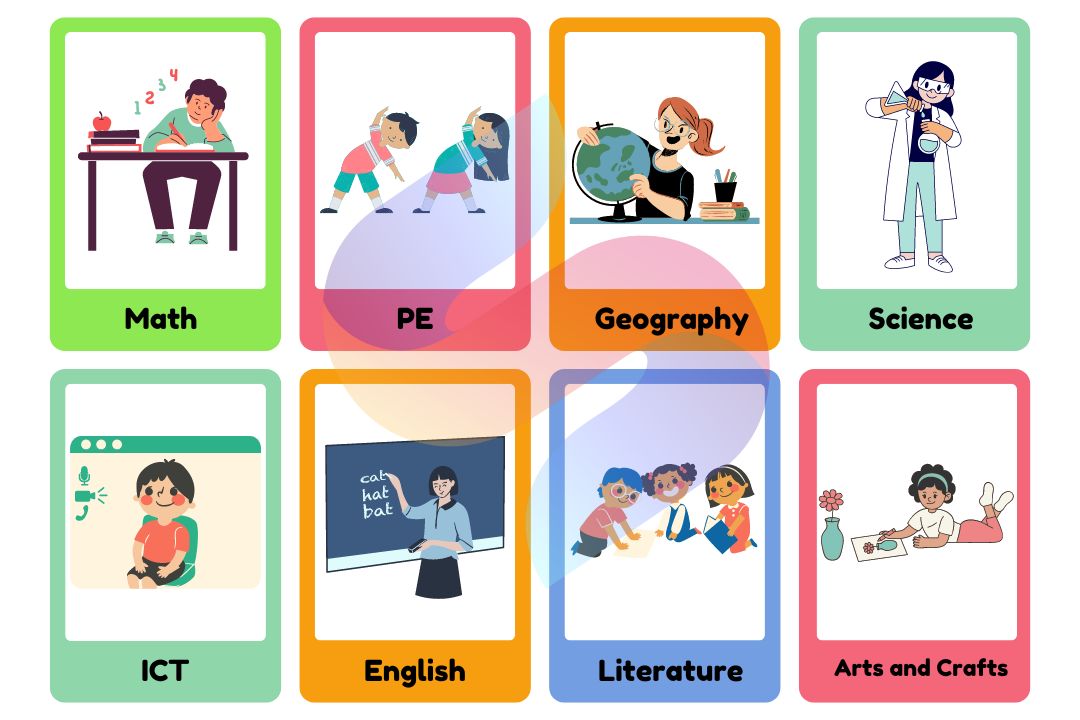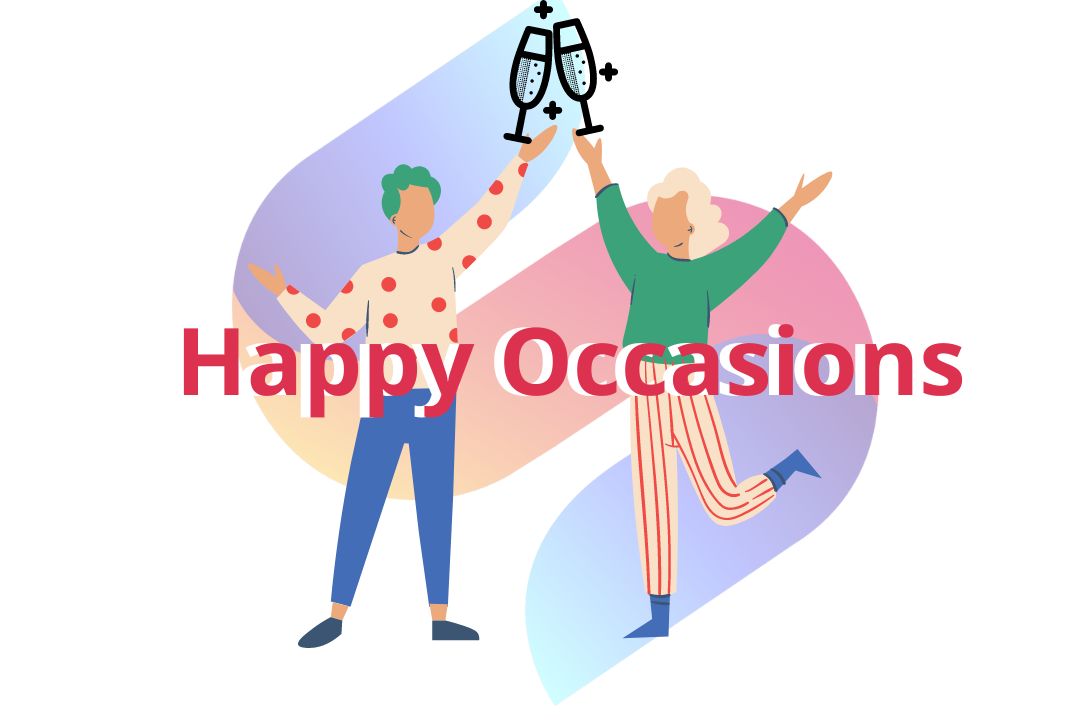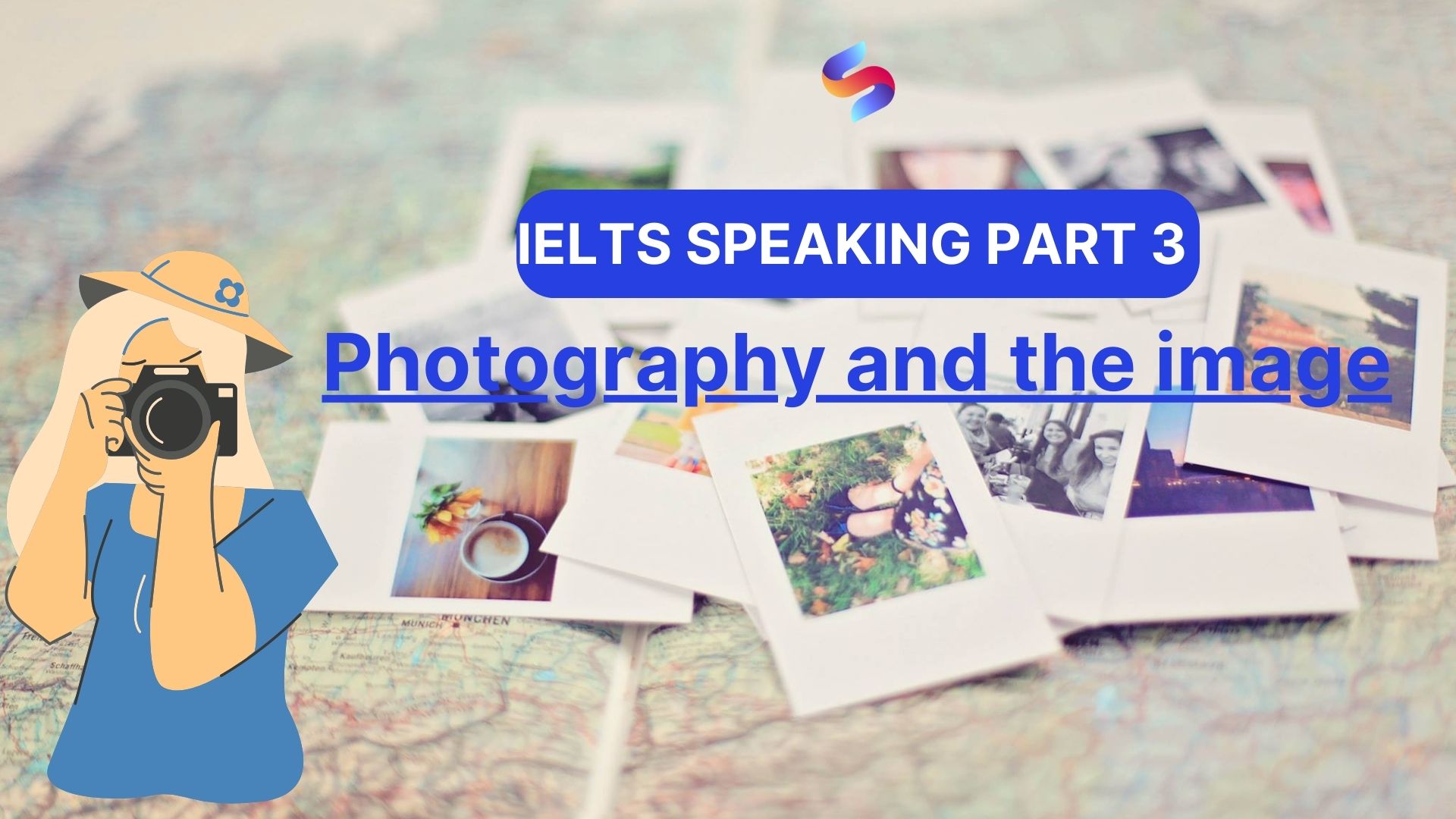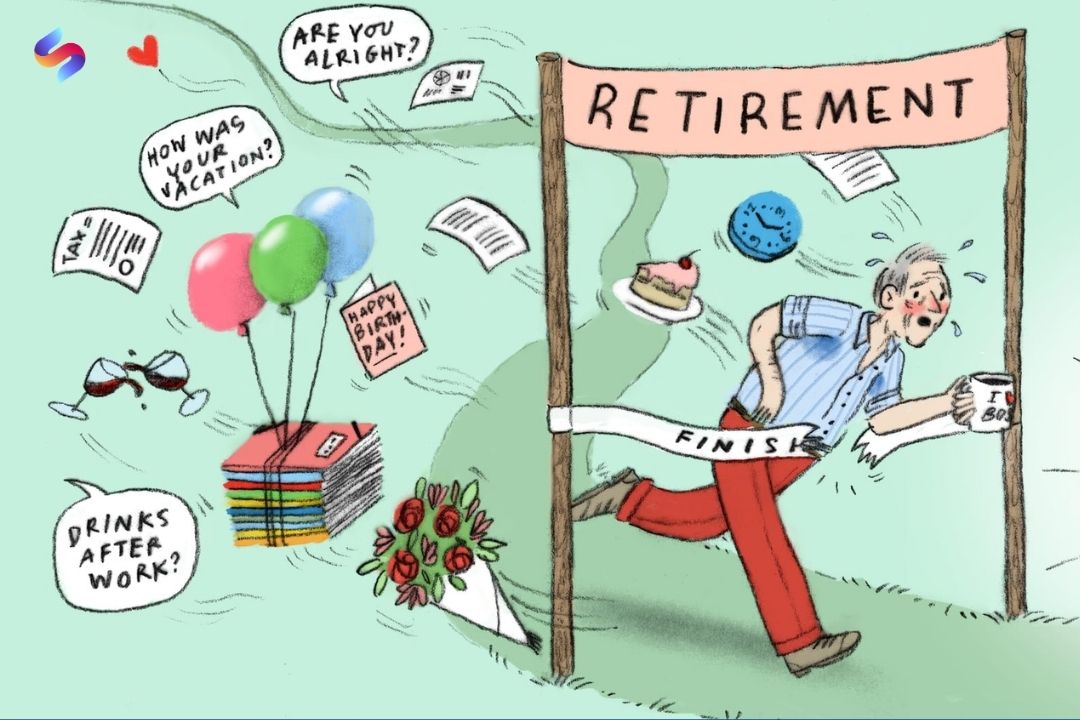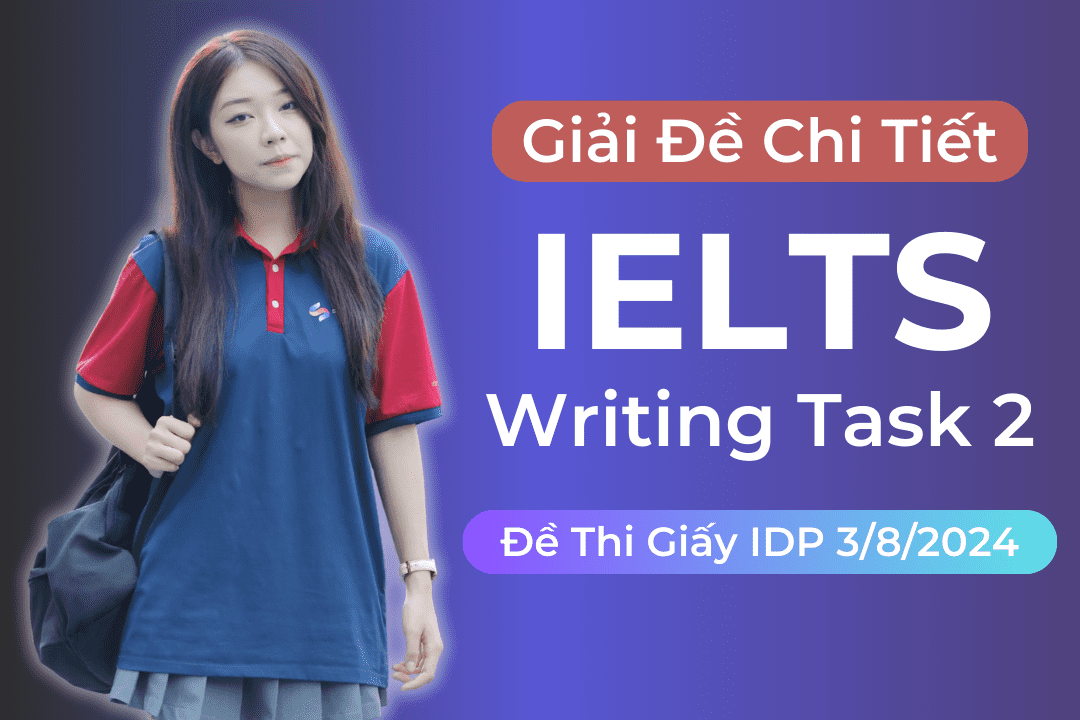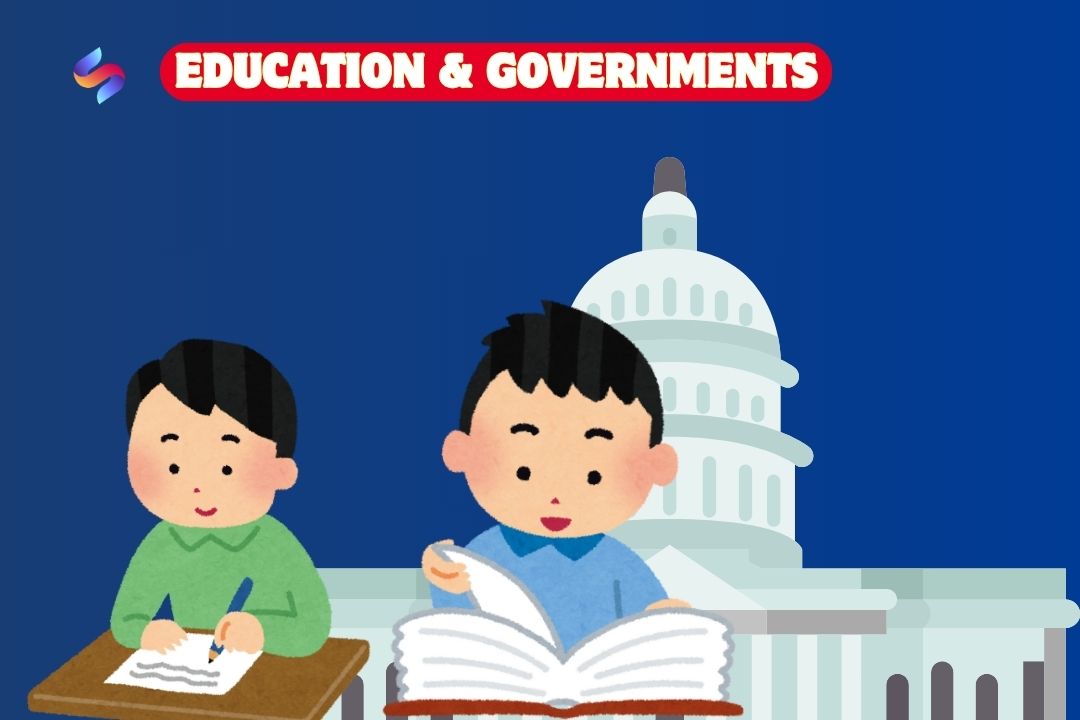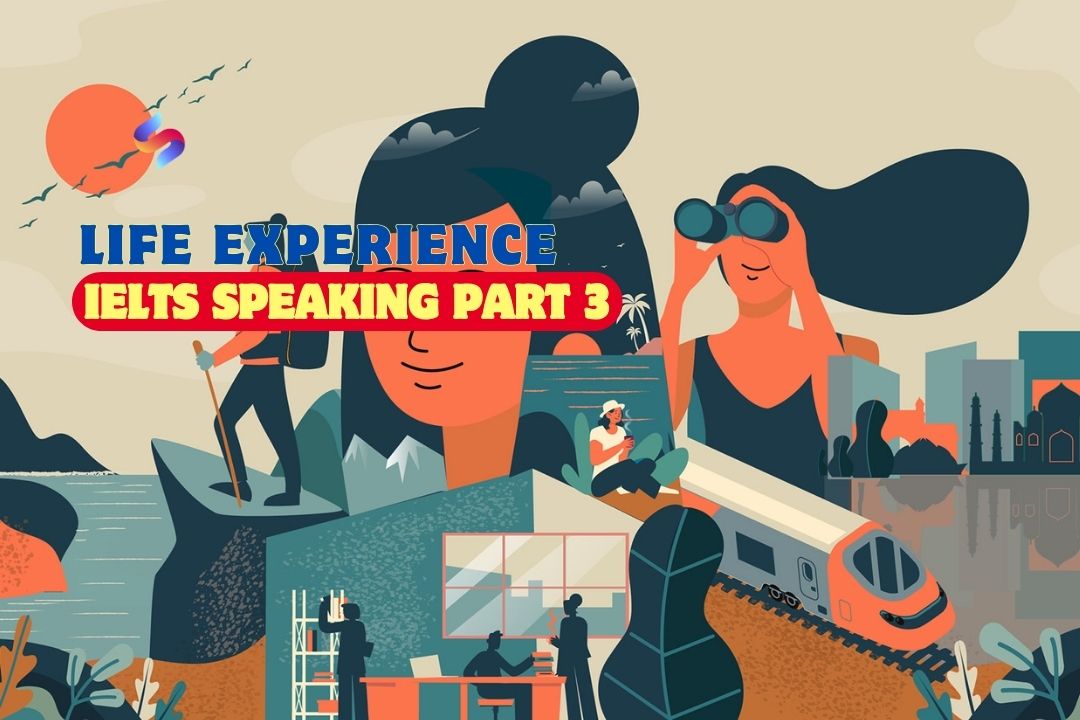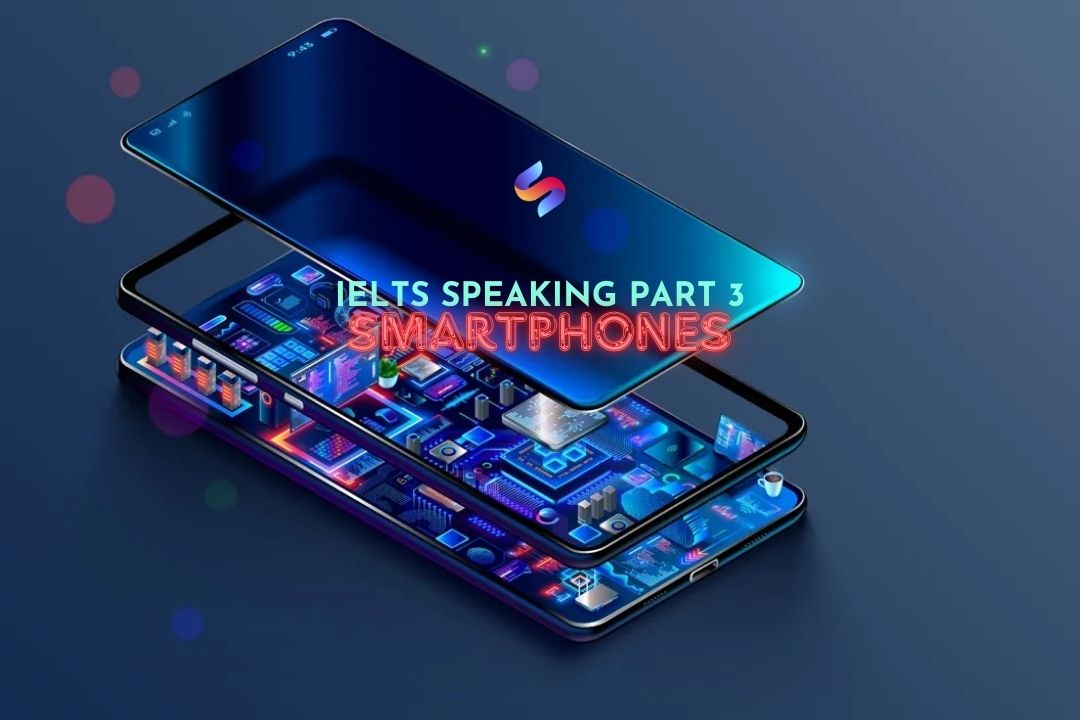Trong phần thi IELTS Speaking part 3 của chủ đề Inventions và copyright lần này, chúng ta sẽ cùng nhau khám phá thế giới của những phát minh sáng tạo. Bạn có biết rằng những phát minh vĩ đại như bóng đèn điện, máy bay hay internet đã thay đổi hoàn toàn cuộc sống của chúng ta? Vậy làm thế nào để các nhà phát minh có thể bảo vệ ý tưởng của mình trước sự cạnh tranh khốc liệt? Chúng ta sẽ cùng nhau tìm hiểu về vai trò của bản quyền trong việc thúc đẩy đổi mới sáng tạo và bảo vệ quyền lợi của các nhà phát minh thông qua các câu hỏi và từ vựng về chủ đề này nhé.
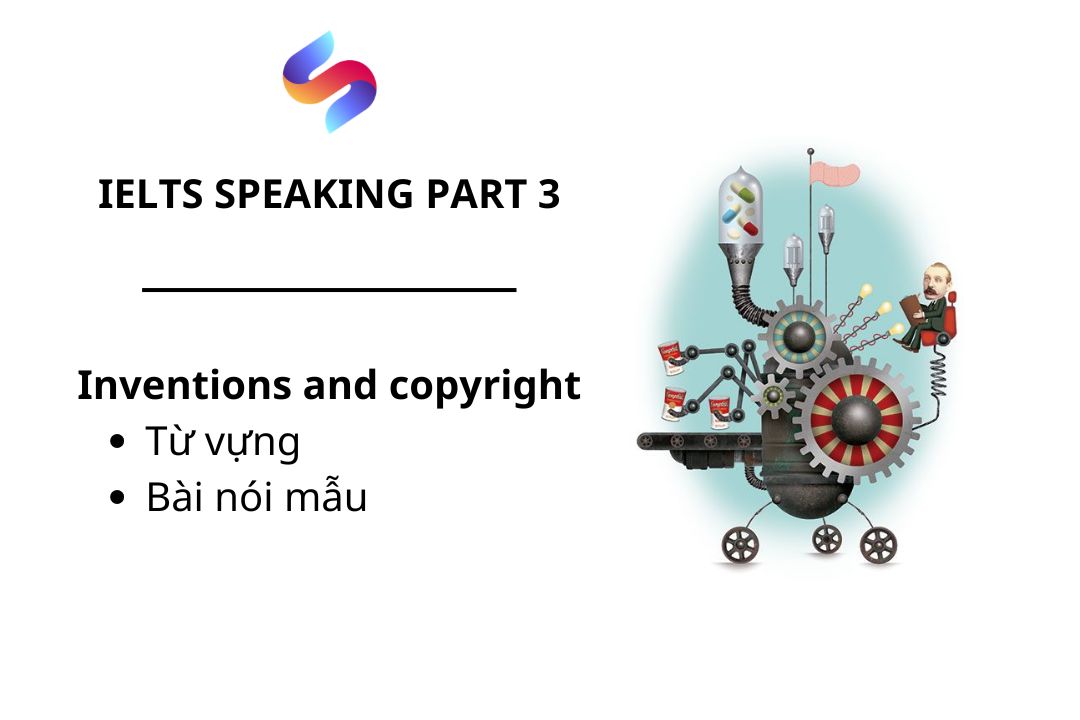
- Which invention has transformed your country most?
- Would you like to be an inventor?
- How long should someone be able to profit from an idea?
- Do you think intellectual property laws are too strict?
- Should all medicines be free to manufacture?
Which invention has transformed your country most?
(Phát minh nào đã thay đổi đất nước bạn nhiều nhất)
In my opinion, the most transformative invention in Vietnam has been the smartphone. Over the past decade, smartphones have become ubiquitous across the country, fundamentally changing how people communicate, work, and entertain themselves. With the widespread use of mobile internet, people now have instant access to information, and this has made the dissemination of knowledge and news much faster than ever before.
Furthermore, the smartphone has revolutionized industries like e-commerce and banking, enabling even small businesses to tap into digital markets. The development of mobile payment systems such as Momo and ZaloPay has allowed people to complete transactions seamlessly, even in remote areas. It has also facilitated the rise of the gig economy, with apps like Grab becoming a central part of daily life.
However, while this invention has accelerated modernization, it has also brought about certain downsides, such as the increasing over-reliance on technology and social media, which can lead to problems like digital addiction and the loss of face-to-face communication skills.
Dịch câu trả lời: Theo tôi, phát minh có sức ảnh hưởng nhất đến Việt Nam chính là điện thoại thông minh. Trong thập kỷ qua, điện thoại thông minh đã trở nên phổ biến khắp cả nước, thay đổi cơ bản cách mọi người giao tiếp, làm việc và giải trí. Với việc sử dụng rộng rãi internet di động, giờ đây mọi người có thể truy cập thông tin ngay lập tức, điều này đã khiến việc phổ biến kiến thức và tin tức trở nên nhanh chóng hơn bao giờ hết.
Hơn nữa, điện thoại thông minh đã cách mạng hóa các ngành như thương mại điện tử và ngân hàng, giúp ngay cả các doanh nghiệp nhỏ cũng có thể tiếp cận thị trường kỹ thuật số. Sự phát triển của các hệ thống thanh toán di động như Momo và ZaloPay đã giúp mọi người hoàn tất giao dịch một cách trơn tru, ngay cả ở các khu vực vùng sâu vùng xa. Nó cũng đã tạo điều kiện cho sự phát triển của nền kinh tế chia sẻ, với các ứng dụng như Grab trở thành một phần trung tâm trong cuộc sống hàng ngày.
Tuy nhiên, dù phát minh này đã thúc đẩy quá trình hiện đại hóa, nó cũng mang lại một số hạn chế, như sự phụ thuộc quá mức vào công nghệ và mạng xã hội, dẫn đến những vấn đề như nghiện kỹ thuật số và mất đi kỹ năng giao tiếp trực tiếp.
Từ vựng cần lưu ý:
| Word/Phrase |
Phonetic Transcription |
Word Type |
Vietnamese Meaning |
Example Sentence |
| transformative |
/trænsˈfɔːrmətɪv/ |
adjective |
mang tính chuyển đổi |
Smartphones have had a transformative impact on how people live. |
| ubiquitous |
/juːˈbɪkwɪtəs/ |
adjective |
có mặt khắp nơi |
Smartphones are ubiquitous in Vietnam nowadays. |
| instant access |
/ˈɪnstənt ˈækses/ |
noun phrase |
truy cập tức thì |
Smartphones provide instant access to news and information. |
| revolutionized |
/ˌrɛvəˈluːʃənaɪzd/ |
verb |
cách mạng hóa |
The smartphone revolutionized communication in Vietnam. |
| e-commerce |
/ˌiː ˈkɒmɜːrs/ |
noun |
thương mại điện tử |
E-commerce has grown significantly due to the rise of mobile apps. |
| tap into |
/tæp ˈɪntuː/ |
phrasal verb |
khai thác, tận dụng |
Small businesses can now tap into global markets. |
| seamlessly |
/ˈsiːmlɪsli/ |
adverb |
một cách trơn tru |
Mobile payment systems allow people to complete transactions seamlessly. |
| facilitated |
/fəˈsɪlɪteɪtɪd/ |
verb |
tạo điều kiện, thúc đẩy |
The introduction of mobile apps facilitated online shopping. |
| downsides |
/ˈdaʊnˌsaɪdz/ |
noun |
mặt hạn chế |
There are downsides to being overly reliant on smartphones. |
| over-reliance |
/ˈoʊvər rɪˈlaɪəns/ |
noun phrase |
sự phụ thuộc quá mức |
The over-reliance on technology can lead to social problems. |
Would you like to be an inventor?
(Bạn có muốn trở thành nhà sáng chế không?)
I believe being an inventor would be both fascinating and challenging. On one hand, inventors have the opportunity to bring groundbreaking ideas to life and create solutions that can revolutionize industries or improve people’s everyday lives. I’ve always admired individuals who possess the creativity and tenacity to transform abstract concepts into tangible products. If I were an inventor, I would focus on developing sustainable technologies that could help combat climate change, as I think environmental issues are one of the most pressing concerns of our time.
On the other hand, being an inventor comes with its own set of obstacles. It requires immense dedication, and there’s always the risk of failure. Many inventions take years to perfect, and the process can be financially draining. Despite these challenges, I think the sense of accomplishment from successfully creating something innovative would be incredibly rewarding. In short, while being an inventor is no easy feat, I think it would be a career worth pursuing.
Dịch câu trả lời: Tôi tin rằng việc trở thành một nhà phát minh vừa hấp dẫn vừa thử thách. Một mặt, các nhà phát minh có cơ hội biến những ý tưởng đột phá thành hiện thực và tạo ra những giải pháp có thể cách mạng hóa các ngành công nghiệp hoặc cải thiện đời sống hàng ngày của mọi người. Tôi luôn ngưỡng mộ những người có khả năng sáng tạo và kiên trì để biến những khái niệm trừu tượng thành các sản phẩm cụ thể. Nếu tôi là một nhà phát minh, tôi sẽ tập trung vào việc phát triển các công nghệ bền vững để giúp chống lại biến đổi khí hậu, vì tôi nghĩ các vấn đề môi trường là một trong những mối quan tâm cấp bách nhất hiện nay.
Mặt khác, việc trở thành một nhà phát minh cũng đi kèm với nhiều trở ngại. Việc này yêu cầu sự cống hiến lớn và luôn có nguy cơ thất bại. Nhiều phát minh cần nhiều năm để hoàn thiện, và quá trình này có thể gây ra gánh nặng tài chính. Dù có những thử thách này, tôi nghĩ rằng cảm giác thành tựu từ việc tạo ra điều gì đó đổi mới sẽ vô cùng đáng giá. Tóm lại, dù việc trở thành một nhà phát minh không phải là điều dễ dàng, tôi nghĩ đó sẽ là một nghề nghiệp đáng theo đuổi
Từ vựng lưu ý:
| Word/Phrase |
Phonetic Transcription |
Word Type |
Vietnamese Meaning |
Example Sentence |
| fascinating |
/ˈfæsɪneɪtɪŋ/ |
adjective |
hấp dẫn, lôi cuốn |
The idea of creating new technologies is fascinating to me. |
| challenging |
/ˈʧælɪnʤɪŋ/ |
adjective |
đầy thử thách |
Inventing something truly groundbreaking can be very challenging. |
| groundbreaking |
/ˈgraʊndˌbreɪkɪŋ/ |
adjective |
đột phá |
Many groundbreaking inventions have shaped the modern world. |
| revolutionize |
/ˌrɛvəˈluːʃənaɪz/ |
verb |
cách mạng hóa |
The smartphone has revolutionized communication worldwide. |
| creativity |
/ˌkriːeɪˈtɪvɪti/ |
noun |
tính sáng tạo |
Inventors need a high level of creativity to come up with new ideas. |
| tenacity |
/təˈnæsɪti/ |
noun |
sự bền bỉ, kiên trì |
Tenacity is crucial for overcoming the challenges of inventing. |
| transform abstract concepts |
/trænsˈfɔːrm æbˈstrækt ˈkɒnsɛpts/ |
verb phrase |
biến ý tưởng trừu tượng thành hiện thực |
Inventors are skilled at transforming abstract concepts into products. |
| sustainable |
/səˈsteɪnəbl/ |
adjective |
bền vững |
Sustainable technologies are essential for protecting the environment. |
| obstacles |
/ˈɒbstəkls/ |
noun |
trở ngại |
There are many obstacles to overcome when creating new inventions. |
| financially draining |
/faɪˈnænʃəli ˈdreɪnɪŋ/ |
adjective |
gây hao tốn tài chính |
The development of new products can be financially draining. |
| sense of accomplishment |
/sɛns əv əˈkɒmplɪʃmənt/ |
noun phrase |
cảm giác thành tựu/ cảm giác đạt được điều gì đó |
Successfully inventing something gives a great sense of accomplishment. |
How long should someone be able to profit from an idea?
(Một người có thể được hưởng lợi từ một ý tưởng trong bao lâu?)
In my view, one should ideally be able to profit from an idea as long as it continues to benefit the public. However, this is not always the case due to varying patent laws across different countries. For instance, the United States typically grants a 20-year patent, while the United Kingdom offers protection for about 4 years. This disparity highlights a key issue: a patent does not inherently guarantee financial gain for the inventor. Instead, it merely provides the right to exclude others from making, using, selling, or importing the invention. Therefore, an idea might not yield any profit if it fails to gain traction or if there is insufficient interest or demand for it. Ultimately, the economic viability of an idea depends not only on legal protection but also on its market acceptance and commercial success.
Dịch câu trả lời: Theo tôi, một người nên có khả năng thu lợi từ một ý tưởng miễn là nó tiếp tục mang lại lợi ích cho công chúng. Tuy nhiên, trên thực tế, điều này không phải lúc nào cũng xảy ra do các quy định về bằng sáng chế khác nhau giữa các quốc gia. Ví dụ, Hoa Kỳ thường cấp bằng sáng chế trong 20 năm, trong khi Vương quốc Anh chỉ cấp phép trong khoảng 4 năm. Sự khác biệt này nêu bật một vấn đề quan trọng: một tấm bằng sáng chế không đảm bảo lợi nhuận tài chính cho nhà phát minh. Thay vào đó, nó chỉ cung cấp quyền loại trừ người khác khỏi việc sản xuất, sử dụng, bán hoặc nhập khẩu phát minh đó. Do đó, một ý tưởng có thể không mang lại lợi nhuận nếu nó không thu hút được sự quan tâm hoặc nhu cầu. Cuối cùng, khả năng sinh lợi kinh tế của một ý tưởng không chỉ phụ thuộc vào sự bảo vệ pháp lý mà còn vào sự chấp nhận của thị trường và thành công thương mại.
Từ vựng lưu ý:
| Word/Phrase |
Phonetic Transcription |
Word Type |
Vietnamese Meaning |
Example Sentence |
| patent |
/ˈpætənt/ |
noun |
bằng sáng chế |
The patent grants exclusive rights to the inventor for 20 years. |
| inventor |
/ɪnˈvɛntər/ |
noun |
nhà phát minh |
The inventor holds the patent for the innovative technology. |
| right to exclude others |
/raɪt tuː ɪkˈskluːd ˈʌðərz/ |
noun phrase |
quyền loại trừ người khác |
A patent gives the inventor the right to exclude others from using the invention. |
| traction |
/ˈtrækʃən/ |
noun |
sự thu hút |
The idea did not gain traction in the market. |
| economic viability |
/ˌiːkəˈnɒmɪk ˌvaɪəˈbɪləti/ |
noun phrase |
khả năng sinh lợi |
The economic viability of an idea depends on market demand. |
Do you think intellectual property laws are too strict?
(Bạn có cho rằng luật sở hữu trí tuệ quá nghiêm ngặt không?)
I believe intellectual property laws can sometimes be overly stringent. While they are crucial for safeguarding the rights of creators, they can occasionally be restrictive. For instance, excessive copyright rules might stifle innovation by limiting the use of existing works. However, finding a balance is vital, as these laws also prevent intellectual theft and ensure fair compensation for creators. Thus, while the laws can seem too strict, they play a crucial role in encouraging creativity and protecting new ideas.
Dịch câu trả lời: Tôi tin rằng các luật sở hữu trí tuệ đôi khi có thể quá nghiêm ngặt. Mặc dù chúng rất quan trọng để bảo vệ quyền của các nhà sáng tạo, nhưng đôi khi chúng có thể trở nên hạn chế. Ví dụ, các quy định bản quyền quá mức có thể ngăn cản đổi mới bằng cách giới hạn việc sử dụng các tác phẩm hiện có. Tuy nhiên, việc tìm kiếm sự cân bằng là rất quan trọng, vì những luật này cũng ngăn chặn đánh cắp trí tuệ và đảm bảo sự bồi thường công bằng cho các nhà sáng tạo. Do đó, dù luật có vẻ quá nghiêm ngặt, chúng vẫn đóng vai trò quan trọng trong việc khuyến khích sáng tạo và bảo vệ các ý tưởng mới.
Từ vựng lưu ý:
| Word/Phrase |
Phonetic Transcription |
Word Type |
Vietnamese Meaning |
Example Sentence |
| overly stringent |
/ˈoʊvərli ˈstrɪndʒənt/ |
adjective |
quá nghiêm ngặt |
Intellectual property laws can sometimes seem overly stringent. |
| rights of creators |
/raɪts əv krieɪtərz/ |
noun phrase |
quyền của các nhà sáng tạo |
These laws protect the rights of creators. |
| restrictive |
/rɪˈstrɪktɪv/ |
adjective |
hạn chế |
Some rules can be overly restrictive and limit creativity. |
| stifle |
/ˈstaɪfəl/ |
verb |
ngăn cản, kìm hãm |
Strict rules might stifle innovation. |
| intellectual theft |
/ˌɪntəˈlɛkʧʊəl θɛft/ |
noun phrase |
đánh cắp trí tuệ |
Adequate protection prevents intellectual theft. |
| compensation |
/ˌkɒmpənˈseɪʃən/ |
noun |
sự bồi thường |
Fair compensation ensures creators are rewarded for their work. |
Should all medicines be free to manufacture?
(Các loại thuốc có nên được miễn phí để sản xuất không?)
Ideally, making all medicines free to manufacture would significantly improve accessibility and affordability, especially in developing countries where essential treatments are often out of reach. However, this approach must be balanced with the financial implications for pharmaceutical companies, which invest heavily in research and development. While reducing costs is crucial, maintaining incentives for innovation is also essential. Therefore, a combination of subsidies and government support might be a more practical solution to ensure medicines are both affordable and continuously improved.
Dịch câu trả lời: Lý tưởng nhất, việc làm tất cả các loại thuốc miễn phí để sản xuất sẽ cải thiện đáng kể khả năng tiếp cận và tính khả thi về mặt tài chính, đặc biệt là ở các quốc gia đang phát triển, nơi các phương pháp điều trị thiết yếu thường không thể tiếp cận được. Tuy nhiên, cách tiếp cận này phải được cân nhắc với tác động tài chính đối với các công ty dược phẩm, những người đầu tư rất nhiều vào nghiên cứu và phát triển. Mặc dù giảm chi phí là rất quan trọng, nhưng việc duy trì động lực đổi mới cũng là điều cần thiết. Do đó, một sự kết hợp giữa trợ cấp và hỗ trợ của chính phủ có thể là giải pháp thực tế hơn để đảm bảo rằng thuốc vừa có giá cả phải chăng vừa liên tục được cải tiến.
Từ vựng lưu ý:
| Word/Phrase |
Phonetic Transcription |
Word Type |
Vietnamese Meaning |
Example Sentence |
| free to manufacture |
/friː tuː ˌmænəˈfækʧər/ |
verb phrase |
miễn phí để sản xuất |
Making all medicines free to manufacture would improve accessibility. |
| accessibility |
/ˌæksəˈsɪbɪləti/ |
noun |
khả năng tiếp cận |
Improved accessibility means more people can obtain necessary treatments. |
| affordability |
/əˌfɔːrdəˈbɪləti/ |
noun |
tính khả thi về mặt tài chính |
Affordability ensures that treatments are within financial reach. |
| developing countries |
/dɪˈvɛləpɪŋ ˈkʌntriz/ |
noun phrase |
các quốc gia đang phát triển |
Developing countries would benefit greatly from lower manufacturing costs. |
| financial implications |
/faɪˈnænʃəl ˌɪmplɪˈkeɪʃənz/ |
noun phrase |
tác động tài chính |
Financial implications need to be considered for pharmaceutical companies. |
| research and development |
/rɪˈsɜːrʧ ənd dɪˈvɛləpmənt/ |
noun phrase |
nghiên cứu và phát triển |
High research and development costs are a major concern. |
| incentives for innovation |
/ɪnˈsɛntɪvz fɔːr ˌɪnəˈveɪʃən/ |
noun phrase |
động lực đổi mới |
Incentives for innovation are crucial for ongoing progress. |
| subsidies |
/ˈsʌbsɪdiz/ |
noun |
trợ cấp |
Subsidies could help reduce manufacturing costs. |
| government support |
/ˈɡʌvərnmənt səˈpɔːrt/ |
noun phrase |
hỗ trợ của chính phủ |
Government support can balance affordability with innovation. |
Khi làm bài IELTS Speaking Part 3 về chủ đề Invention và Copyright, việc nắm vững kiến thức và kỹ năng trình bày là rất quan trọng. Trước tiên, hãy hiểu rõ sự khác biệt giữa invention (phát minh) và copyright (bản quyền). Phát minh là sự tạo ra sản phẩm hoặc phương pháp mới, trong khi bản quyền bảo vệ quyền lợi của tác giả đối với các sản phẩm trí tuệ.
Trong phần trả lời, hãy luôn trình bày ý chính rõ ràng, bắt đầu với quan điểm hoặc thông tin chính của bạn, sau đó phát triển ý bằng cách cung cấp lý do, ví dụ cụ thể và giải thích chi tiết. Đừng quên kết luận để tóm tắt quan điểm của bạn.
Sử dụng từ vựng và cụm từ nâng cao như “groundbreaking” (đột phá), “intellectual property” (sở hữu trí tuệ), và “legal protection” (bảo vệ pháp lý) để thể hiện sự hiểu biết sâu sắc về chủ đề. Kết hợp câu phức tạp để nâng cao điểm số ngữ pháp. Ví dụ: “While inventions drive technological progress, copyright laws are essential to ensure creators are compensated for their innovations.”
Hãy đưa ra ví dụ cụ thể và thảo luận về lợi ích và thách thức của cả phát minh và bản quyền. Ví dụ: “The invention of the internet has revolutionized communication, but the challenge of enforcing copyright in the digital age remains significant.”
Đảm bảo sự liên kết và mạch lạc trong bài nói bằng cách sử dụng các cụm từ liên kết như “Moreover” và “On the other hand.” Cuối cùng, hãy luyện tập phản xạ nhanh, giữ phong thái bình tĩnh và tự tin để diễn đạt ý tưởng một cách rõ ràng và thuyết phục.
Áp dụng những lưu ý và kinh nghiệm này sẽ giúp bạn trả lời các câu hỏi về phát minh và bản quyền một cách hiệu quả, từ đó nâng cao điểm số trong phần Speaking của kỳ thi IELTS. Chúc các bạn đạt kết quả tốt!
